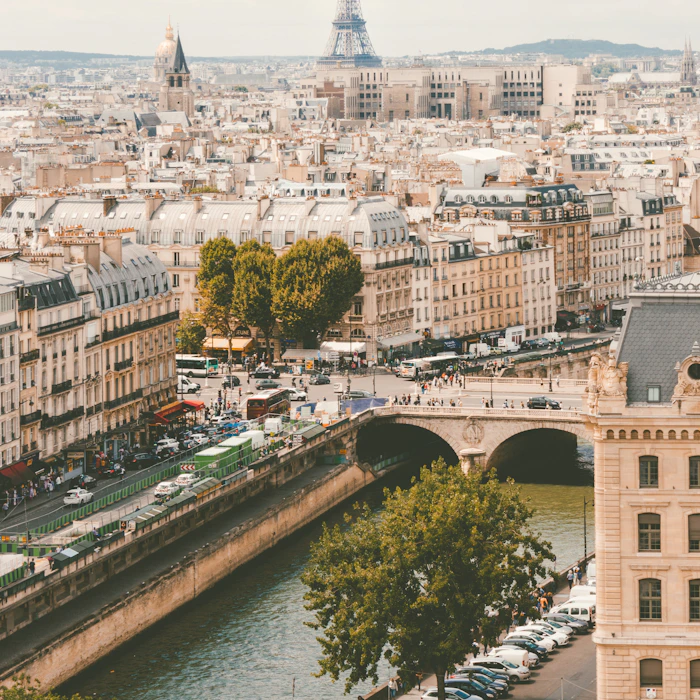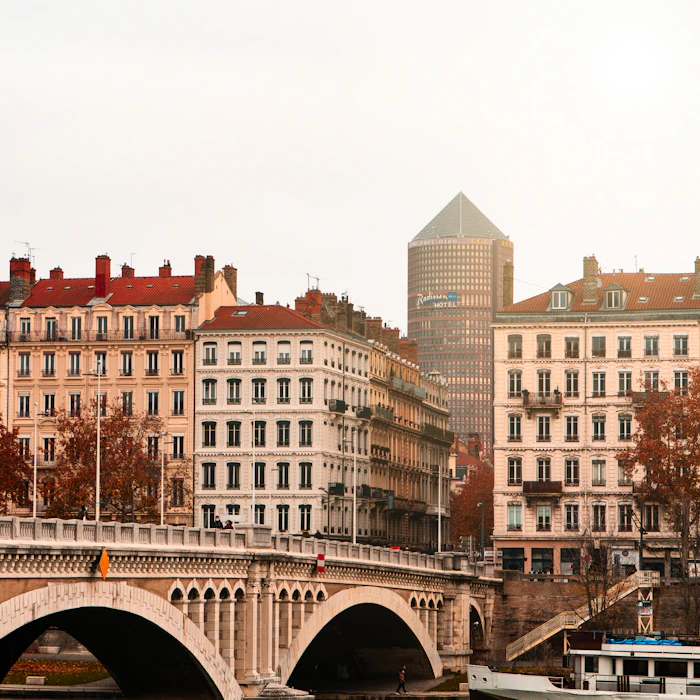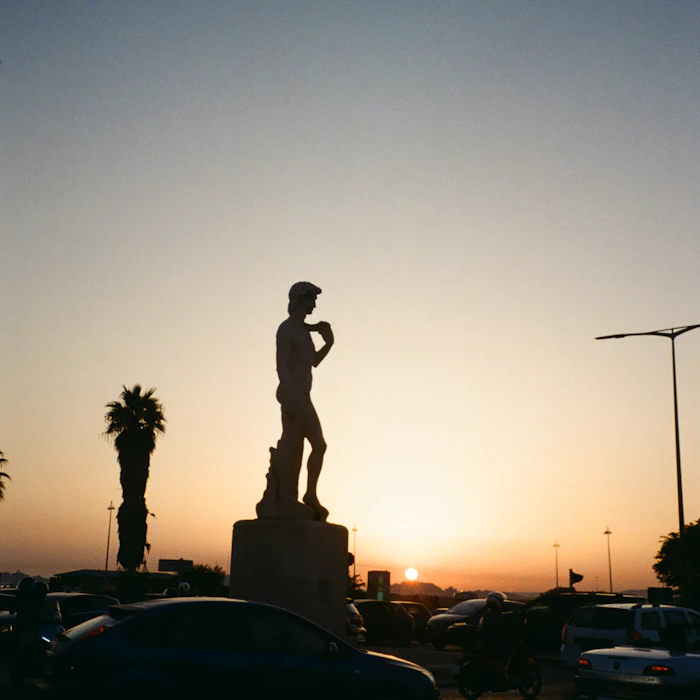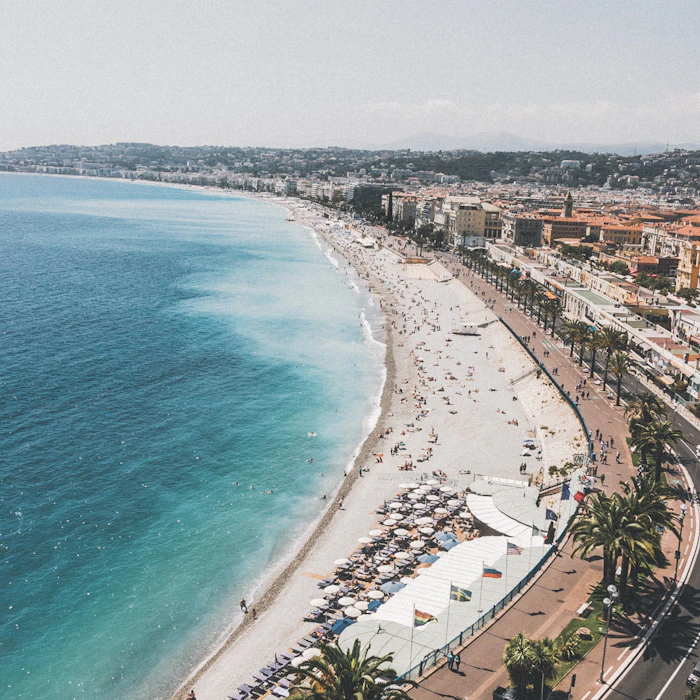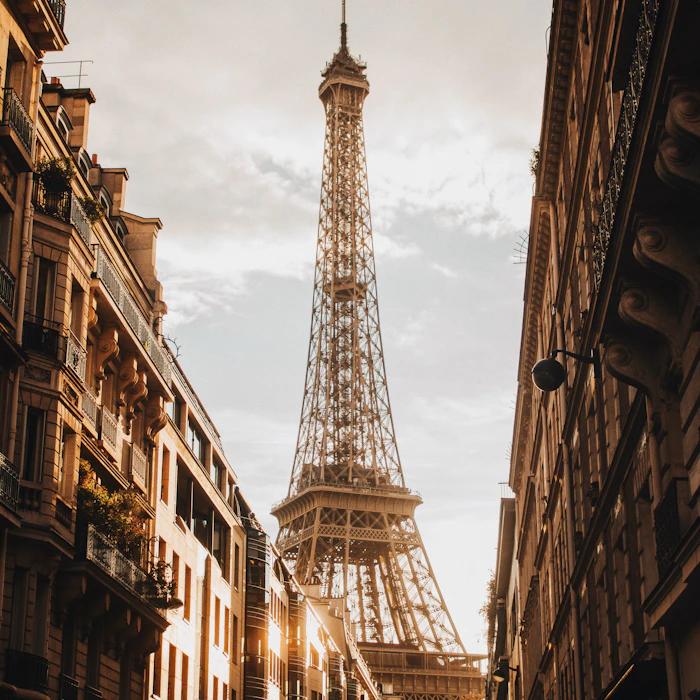


Is Bellevue in France Safe?
Bellevue in France is generally safe for tourists, with low crime rates and minimal political tensions. However, be vigilant against petty crimes like pickpocketing in crowded areas. The region has a low risk of natural disasters, but heavy rainfall can occasionally cause flooding. Public transportation is reliable and well-maintained, ensuring safe travel within the city.
Safety & Security
Bellevue in France is generally considered a safe destination for travelers. However, it's important to exercise caution and be aware of potential risks.
-
Petty Crime: While violent crime rates are low, petty crimes such as pickpocketing and bag snatching can occur, especially in crowded areas and tourist hotspots. Remain vigilant and keep valuables secure.
-
Scams: Be wary of common scams targeting tourists, such as overcharging for services, fake tour guides, or street vendors selling counterfeit goods.
-
Civil Unrest: Occasional protests and demonstrations can occur in Bellevue, as in other major French cities. Avoid areas where large crowds have gathered and monitor local news for updates.
-
Terrorism: While the risk of terrorism is present throughout France, Bellevue has not experienced significant incidents in recent years. Remain vigilant in crowded public spaces and follow the advice of local authorities.
-
Disputes: Disputes or confrontations with locals are rare but can occur due to cultural differences or misunderstandings. Maintain a respectful and courteous demeanor to avoid potential conflicts.
Overall, Bellevue is a relatively safe destination, but travelers should exercise common sense precautions, be aware of their surroundings, and follow local laws and customs.
Health & Medical
Bellevue in France is generally a safe destination for travelers in terms of health risks. However, it's essential to take some precautions and be aware of potential health concerns.
-
Vaccinations: Ensure routine vaccinations are up-to-date, including those for measles, mumps, rubella, and COVID-19. No additional vaccinations are typically required for travel to France.
-
Common Illnesses: Travelers should be cautious of foodborne and waterborne illnesses, especially during the summer months. Practicing good hygiene and avoiding undercooked or raw foods can help prevent these illnesses.
-
Air Quality: While air pollution levels in Bellevue are generally low, those with respiratory conditions should monitor air quality reports and take necessary precautions.
-
Medical Facilities: Bellevue has adequate medical facilities, including hospitals and clinics. However, it's advisable to have comprehensive travel insurance that covers medical emergencies and evacuations.
-
Insect-Borne Diseases: Although rare, there is a low risk of insect-borne diseases like Lyme disease and West Nile virus. Using insect repellent and avoiding wooded areas can help mitigate these risks.
Remember, taking preventive measures and being aware of potential health risks can help ensure a safe and enjoyable trip to Bellevue, France.
Natural Disasters
Bellevue in France is generally not prone to major natural disasters, but travelers should be aware of a few potential risks. The region experiences a temperate oceanic climate with mild winters and warm summers.
-
Flooding: Heavy rainfall can occasionally lead to localized flooding, especially in low-lying areas or near rivers and streams. Travelers should monitor weather advisories and avoid flooded areas.
-
Thunderstorms: Summer months bring the risk of thunderstorms, which can be accompanied by strong winds, heavy rain, and lightning strikes. Seek shelter indoors during severe thunderstorms.
-
Wildfires: While not common, dry conditions during the summer can increase the risk of wildfires in forested areas. Heed any warnings or evacuation orders issued by local authorities.
-
Heatwaves: Periods of extreme heat can occur during the summer months. Travelers should stay hydrated, seek shade, and limit outdoor activities during the hottest parts of the day.
Overall, the risk of major natural disasters in Bellevue is relatively low, but travelers should exercise caution and stay informed about current weather conditions and any advisories issued by local authorities.
Transportation
Bellevue in France offers a reliable and safe transportation system for travelers. The city has an efficient public transportation network consisting of buses and trams, making it easy to navigate without a personal vehicle. Road safety is generally good, with well-maintained roads and clear signage. However, it's advisable to exercise caution when driving, as traffic can be heavy during peak hours.
-
Public Transportation: The bus and tram systems are modern, clean, and frequent, providing convenient access to most areas of the city. Timetables and route maps are readily available, and the services are reasonably priced.
-
Taxis: Taxis are readily available and can be hailed on the street or booked in advance. They are a safe and convenient option, especially for late-night travel or when carrying luggage. However, fares can be higher than public transportation.
-
Cycling: Bellevue has a growing network of dedicated bike lanes, making cycling a popular and eco-friendly way to explore the city. Bike rentals are widely available, and many hotels offer bike rental services.
-
Walking: The city center is compact and pedestrian-friendly, with well-maintained sidewalks and pedestrian zones. Walking is a great way to experience the city's charm and discover hidden gems.
Road Safety: While driving in Bellevue is generally safe, travelers should be aware of the potential for heavy traffic during rush hours and exercise caution when navigating roundabouts and one-way streets. Parking can be challenging in some areas, so it's advisable to use public transportation or park in designated lots when possible.
Cultural Norms
Bellevue in France is a charming town with a rich cultural heritage. As a traveler, it's essential to respect local customs and traditions to ensure a smooth and enjoyable experience. Here are some tips to keep in mind:
-
Religious Customs: Bellevue has a significant Catholic population, and it's advisable to dress modestly when visiting churches or religious sites. Avoid revealing clothing and remove hats or caps as a sign of respect.
-
Local Festivals: The town celebrates several annual festivals, such as the Fête de la Musique in June and the Fête des Vendanges (Wine Harvest Festival) in September. Attending these events can provide a unique insight into the local culture, but be mindful of any specific customs or traditions associated with them.
-
Language Etiquette: While many locals may understand English, making an effort to learn a few basic French phrases can go a long way in showing respect for the local culture. Greetings like "Bonjour" (Hello) and "Merci" (Thank you) are appreciated.
-
Dining Customs: French dining etiquette is essential, especially in upscale restaurants. Avoid resting your elbows on the table, and keep your hands visible when eating. It's also considered impolite to start eating before the host or the eldest person at the table.
-
Public Behavior: Maintain a respectful demeanor in public spaces, avoiding loud or disruptive behavior that could be seen as disrespectful to the local community.
By embracing and respecting the local customs and traditions, travelers can enhance their experience in Bellevue and create lasting memories while fostering a positive cultural exchange.
Emergency Services
Emergency services in Bellevue, France are generally reliable and well-equipped to handle various situations. However, as a tourist, it's essential to be aware of the availability and limitations of these services.
-
Emergency Medical Services: Ambulances and emergency medical teams are available, but response times may vary depending on the location and traffic conditions. Private clinics and hospitals are also present, but they can be expensive for non-residents.
-
Fire Department: The fire department is well-organized and equipped to handle fire emergencies, as well as other rescue operations. However, language barriers may pose a challenge for non-French speakers.
-
Police: The police force is present and can assist with emergencies, but their response times may vary. Tourist police units are available in some areas to assist visitors, but their presence is limited.
-
Tourist Assistance Services: Some hotels and travel agencies offer assistance services for tourists, including emergency contacts and translation services. However, these services may come at an additional cost.
It's advisable for travelers to research and familiarize themselves with the emergency services available in their specific area of stay and to have a basic understanding of French or carry a translation app/guide for effective communication in case of emergencies.
Frequently Asked Questions

Is Bellevue safe for tourists?
Bellevue, France is generally considered safe for tourists. However, it's advisable to exercise caution and be aware of your surroundings, especially in crowded areas or at night. Petty crimes like pickpocketing can occur, so keep valuables secure. Additionally, familiarize yourself with local laws and customs to avoid any misunderstandings.
Is Bellevue safe for solo female travelers?
Solo female travelers can feel relatively safe in Bellevue, France. However, it's still important to take precautions and be aware of your surroundings, especially at night. Avoid isolated areas, and consider using trusted transportation services. Trust your instincts and don't hesitate to seek help if you feel uncomfortable.
Is Bellevue safe for families?
Bellevue, France is a family-friendly destination. The city offers various attractions and activities suitable for children, such as parks, museums, and cultural events. Be mindful of your children's safety in crowded areas and when crossing streets. Additionally, research family-friendly accommodations and dining options to ensure a comfortable stay.
Is Bellevue LGBTQ+ friendly?
France is generally LGBTQ+-friendly, with same-sex marriage and anti-discrimination laws in place. However, it's advisable to exercise discretion in public displays of affection, as attitudes may vary. Research local LGBTQ+ resources and events to connect with the community and ensure a safe and enjoyable experience.
Do you need a visa to go to Bellevue?
For most tourists, no visa is required for stays up to 90 days in France. However, a valid passport is necessary. Citizens of the United States, Canada, and the European Union can generally enter France for tourism purposes without a visa. It's advisable to check specific visa requirements based on your nationality and intended length of stay.
Can you drink tap water in Bellevue?
The tap water in Bellevue, France is safe to drink. The water supply is well-regulated and meets high quality standards. However, some visitors may prefer bottled water due to personal taste preferences. When dining out, it's generally safe to consume beverages made with tap water.
What is the currency in Bellevue?
The official currency in Bellevue, France is the Euro (EUR). Major credit and debit cards are widely accepted, but it's advisable to carry some cash for smaller purchases or emergencies. ATMs are readily available throughout the city for cash withdrawals.
France Travel Advisory
The following government travel advisories provide additional helpful resources for your destination to stay safe and informed.
Related Content
- LOW RISK
🇫🇷 France
France is generally safe for tourists, but petty crime like pickpocketing and bag snatching is common in major cities and tourist areas. Terrorism remains a risk, with occasional attacks targeting public spaces. Civil unrest can disrupt travel plans, so monitor news and avoid protests. While violent crime is relatively low, be cautious in isolated areas, especially at night. Familiarize yourself with local laws and customs to avoid cultural misunderstandings.
- LOW RISK
🇫🇷 Bordeaux, France
Bordeaux is generally safe for tourists, with a low risk of violent crime. However, remain vigilant against petty crimes like pickpocketing, especially in crowded areas. The city experiences occasional protests and strikes, so avoid confrontations. While the risk of terrorism is low, remain aware of your surroundings. Bordeaux has excellent medical facilities, but some vaccinations may be recommended based on your travel plans.
- LOW RISK
🇫🇷 Lyon, France
Lyon is generally a safe city for travelers, with low violent crime rates. However, be vigilant against petty crimes like pickpocketing in crowded areas and on public transport. Protests and civil unrest occasionally occur, so avoid demonstrations. Lyon has excellent medical facilities, but some vaccinations may be recommended depending on your travel plans. Overall, Lyon is a secure destination with a few reasonable precautions.
- MEDIUM RISK
🇫🇷 Marseille, France
Marseille has a higher crime rate than other French cities, with risks of petty theft and muggings, especially around tourist hotspots. Violent crime is relatively low but disputes can escalate quickly. Travelers should remain vigilant and avoid isolated areas, especially at night. The city has seen sporadic civil unrest and terrorist threats, though the overall risk is moderate. Adequate medical facilities are available for most routine issues.
- LOW RISK
🇫🇷 Nanterre, France
Nanterre is generally safe for tourists, with petty crime being the primary concern. Violent crime rates are low, but remain vigilant in crowded areas and at night. Civil unrest occasionally occurs, so monitor local news. Terrorism is an unlikely but potential risk in major French cities. Medical facilities are adequate, but no major health risks exist for travelers.
- LOW RISK
🇫🇷 Nice, France
Nice is generally safe for tourists, but petty crime like pickpocketing is common in crowded areas. While violent crime is rare, terrorist threats remain a concern in France. The city has good medical facilities, but travelers should take precautions against mosquito-borne diseases. Natural disasters are not a major risk, but flooding can occur during heavy rains. Public transportation is reliable, but road safety requires caution due to aggressive driving.
- MEDIUM RISK
🇫🇷 Paris, France
Paris is generally safe for tourists, but petty crimes like pickpocketing and bag snatching are common in crowded areas. Remain vigilant in tourist hotspots and on public transportation. While the risk of terrorism exists, it's relatively low. Violent crime rates are also low, but disputes and scams occasionally target tourists. Avoid confrontations and exercise caution, especially at night in certain neighborhoods.
- LOW RISK
🇫🇷 Strasbourg, France
Strasbourg is generally safe for tourists, with low violent crime rates. However, petty crimes like pickpocketing occur in crowded areas, so remain vigilant. The risk of terrorism is present but relatively low. Occasional protests related to political tensions may disrupt transportation. Overall, Strasbourg is a secure destination with proper precautions.
- LOW RISK
🇫🇷 Toulouse, France
Toulouse is generally safe for tourists, with low violent crime rates. However, petty crimes like pickpocketing are common in crowded areas. Protests and strikes can disrupt transportation occasionally. Travelers should remain vigilant in busy tourist spots and during public events. The city has excellent medical facilities, but some vaccinations may be recommended for certain travelers.




